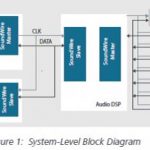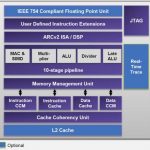You are currently viewing SemiWiki as a guest which gives you limited access to the site. To view blog comments and experience other SemiWiki features you must be a registered member. Registration is fast, simple, and absolutely free so please,
join our community today!
WP_Term Object
(
[term_id] => 178
[name] => IP
[slug] => ip
[term_group] => 0
[term_taxonomy_id] => 178
[taxonomy] => category
[description] => Semiconductor Intellectual Property
[parent] => 0
[count] => 1939
[filter] => raw
[cat_ID] => 178
[category_count] => 1939
[category_description] => Semiconductor Intellectual Property
[cat_name] => IP
[category_nicename] => ip
[category_parent] => 0
[is_post] =>
)
Will you go to Grenoble next week to attend to IP-SoC? I will do it and will certainly listen to these Keynote Talks:
…
Read More
Last week was the Linley Microprocessor Conference. Not the mobile one, which I find the most interesting since smartphones are such a bit part of what drives process technology these days, this is the one focused on networking and servers. But increasingly both markets are being driven by the same thing, namely mobile data. In … Read More
USB is certainly the most ubiquitous of the Interface protocols. I would bet that everybody is using USB everyday (I mean activate a USB connection, as we also use PCIe or SATA even if we don’t realize that we do it), but which application will get benefit of the 10 Gbps delivered by USB 3.1? Before precisely answering the question, … Read More
After a four year gestation period typical of global communications standards, G.fast has reached the point where chipset makers can implement parts against stable specifications. Formal approval of the physical layer spec, G.9701, is expected by the end of 2014. G.9700, dealing with power spectral density issues, was approved… Read More
Internet of Things, or Internet of Everything, is certainly the buzzword of the year. Does IoT describe one product family? Not really as the acronym describes a family of concepts, each of these concepts could effectively be turned into a family of products, if this concept reach the market, or fulfill a market need. Nevertheless… Read More
The evaluation of the number of connected (IoT) systems by 2020 varies depending on the source, but we should see in the range of 30 billion IoT devices by that date. We already know some of the basic requirements: such a device will have to be connected, low cost, ultra-low power and… secure. The first three are key enablers, but we … Read More
Lucio Lanza is this year’s recipient of the Kaufman award. Unlike most recipients, Lucio worked closely with Phil Kaufman earlier in his career. I met with him at his office in Palo Alto to hear the story.
Even if you have never met him, it would be a reasonable guess from his name that Lucio Lanza is Italian. And you’d be right. He grew… Read More
MIPI SoundWire specification will be integrated into mobiles systems, like smartphone or media tablet. In fact some of the well-known chip makers have already decided to integrate MIPI SoundWire into their last application processor release. MIPI SoundWire is also the type of specification which could be used in many other … Read More
Remember that thing called “real-time Linux”? Yeah, nobody else does either. As builds became configurable and clock speeds increased, embedded Linux manifested itself as fast enough for many applications – if a few other SoC details are addressed.
Most obvious for SoCs to run Linux is the need for a fully integrated MMU implementation.… Read More
At Memcon today Mike Demler of the Linley Group (and coincidentally someone who used to work for me back at Cadence and who now run Memcon, small world) gave an interesting presentation on Trends in Mobile Processors. A mobile application processor (AP) is a highly integrated SoC to run the applications in a mobile device. Mostly… Read More






Advancing Automotive Memory: Development of an 8nm 128Mb Embedded STT-MRAM with Sub-ppm Reliability